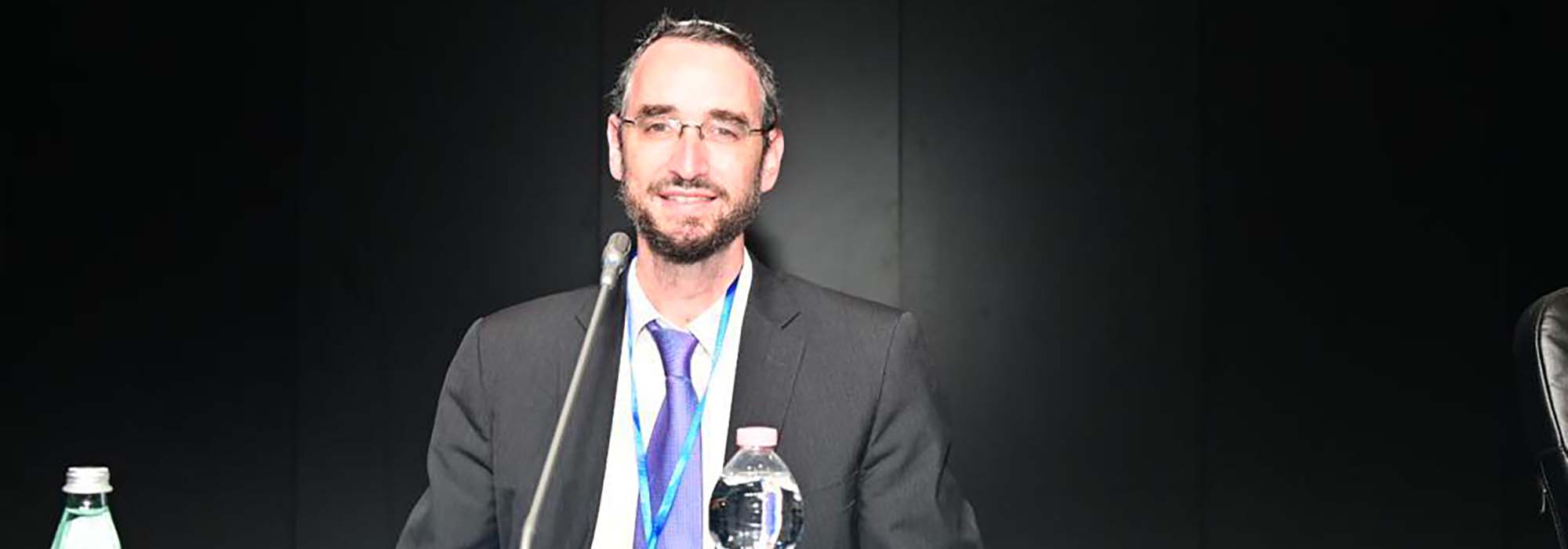
1. Responsibility to the Creator, creation and creatures as the basis for a common future
In the modern age of the 21st century, living together is both a challenge and an opportunity. More than ever before, the Corona crisis made it clear how much we are all in the same boat worldwide and - willing or not - are tied and connected to one another.
Basically, this insight offers the answer to a biblical question posed by the Jewish sages in the Midrash commentary: Why does the Torah, the Five Books of Moses, begin with the creation of the world and man, as we have read in the last weekly Torah-reading, and not with its main focus, which is the laws and doctrines of life, which start from chapter 12 in the second book of Moses.
A first message of the Torah is supposably that with the creation of the world also all human beings arised from one origin and are therefore part of a large - very large - family. This establishes further necessary prerequisites for a successful coexistence, or perhaps also for a survival, on our planet: On the one hand, the responsibility that the creation imposes on mankind to pay attention to it, to respect it and constructively, but not destructively, to refer to it, in the sense of Isaiah's prophetic word (45, 18): "For thus says the Eternal, Creator of heaven, He is G" d, He who formed the earth and made it ... He did not create it for desolation, but formed to inhabit it. "
On the other hand, the acceptance of a bond that connects us all and forms the basis for empathy towards other people. Empathy is difficult to develop towards a stranger, because what common ground does one feel with him? However, it is much easier to feel empathy with close, relative or well known persons, because to a certain extent one is able to rediscover himself in them and thus project the natural positive feelings towards one self onto them. With simple and yet so prominent words of the Torah (3rd Book of Moses 19, 18) expressed: "Love your fellow as yourself - I am the Eternal." The love of fellow implies, at first, self-love and its transference to fellow human beings, and this is based on the words "I am the Eternal" - your common origin.
Leo Tolstoy knew how to put it with other words: If you feel pain, it means you are alive. If you feel the pain of others, it means you are human.
2. A family of siblings
It is well known that tolerance is part of living together. But this involves actually a problem: to tolerate something means to allow it, although you do not approve it yourself, that is, you would actually rather not allow it if it weren't because of tolerance. The problem here is that the tolerant person transfers his personal point of view to the dissident, and this usually with a valuation. Basically, the tolerant thinks: "The other person is wrong, is unfortunately blinded and does not recognize the truth, but in our infinite generosity we also tolerate this ..." Instead of tolerance, we should rather adopt a different way of thinking. Following story will hopefully explain which:
A few centuries ago a ruler decided to drive the Jews out of his domain and gave them a week to do so. All arguments and efforts of the rabbi of the Jewish community to change the mind of the ruler did not help to dissuade him from his decision. When all hope had already been given up, the rabbi's wife said to her husband: “Just let me do it!” She and other women withdrew into a room for the whole night without announcing what they were planning. The next morning she went to the ruler with a delegation of women, while she was carrying two packeges with her, and then said to him: “Great ruler, we are very sad about the farewell that we now have to say, but thank you for the hospitality that has lasted for centuries! As a gift, we brought a present…” With these words, she opened the two packages and rolled out two large carpets, which were woven by the women the night before. "Great ruler, choose which carpet you prefer as a gift!" Both carpets were beautifully woven. The one in strong red, monochrome. The other shone in a splendid sea of colors, while the many colors represented wonderful pictures in the carpet. The decision was not difficult for the ruler - it fell on the colorful carpet. Thereupon the rabbi's wife said: “Great ruler, just see, you yourself have chosen the colorful carpet. However, you want to transform your empire into a monotonous carpet in which other cultures should not find a place!" The insightful ruler resigned from his decision and let the Jewish community continue to live in his domain.
The diversity is not to be understood as a problem and dividing wall, but as a mutual enrichment! It is a chance to supplement and beautify our own life and understanding with more colors, instead of excluding them by claiming just one an only truth! It is for good reason that there is a colorful rainbow on the symbol of St. Egidio.
3. There is no salvation without memory
A Jewish saying says that future salvation is based on memory. The lessons of the scriptures and history are essential to guide us towards building a better, more perfect future.
The redemption, messianic times, which we wish for and which are anchored in the Jewish principles of belief, show global features. This is how Maimonides describes how global peace will come about with the arrival of the Messiah. The prophet Isaiah allegorically describes this, that the lamb rests harmoniously next to the wolf, and that weapons are converted into constructive tools. For the Jewish people this means to be freed from all forms of anti-Semitism.
There will also be general prosperity that everyone can enjoy. People will not be driven by striving for domination, but by the thirst for knowledge, for knowledge of God and spiritual nourishment. There will be neither hunger and poverty nor war, neither envy nor dissatisfaction, the goods of the earth will be abundant.
At the same time, Maimonides makes it clear that the Messiah will neither perform miracles nor change the laws of nature known to us. This is to make it clear that for such a wonderful future it is not necessary to change the world and its laws, it is enough for people to change their behavior - because it is in our hand to change the future for the better and for the best!
